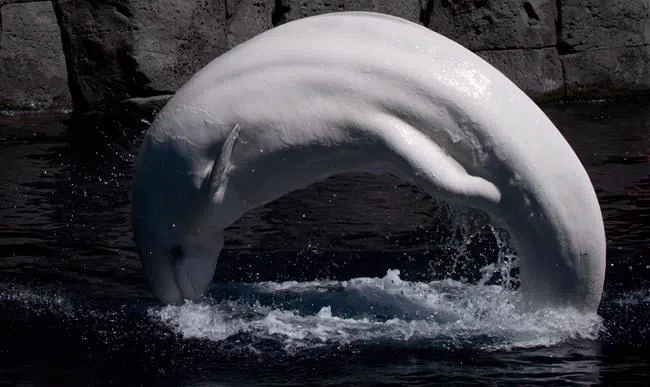
Whales, dolphins will no longer be displayed at Vancouver Aquarium
VANCOUVER — Whales, dolphins and porpoises will no longer be kept at Vancouver’s aquarium, a move that animal advocates say is a step toward the end of cetaceans in captivity.
The Vancouver Aquarium announced Thursday that is ending the display of cetaceans following a long and controversial battle with animal activists and the city’s park board over the issue.
“We made (the decision) because the controversy, the distraction, the dialogue in the community had begun to limit our ability to pursue our ocean conservation mission,” said John Nightingale, the aquarium’s CEO and president.
“Cetaceans were with us here for 50 years, so there’s a variety of emotions, as you can imagine, among many of our staff and board members and supporters. But the universal urge to get on with things is the driving force.”
